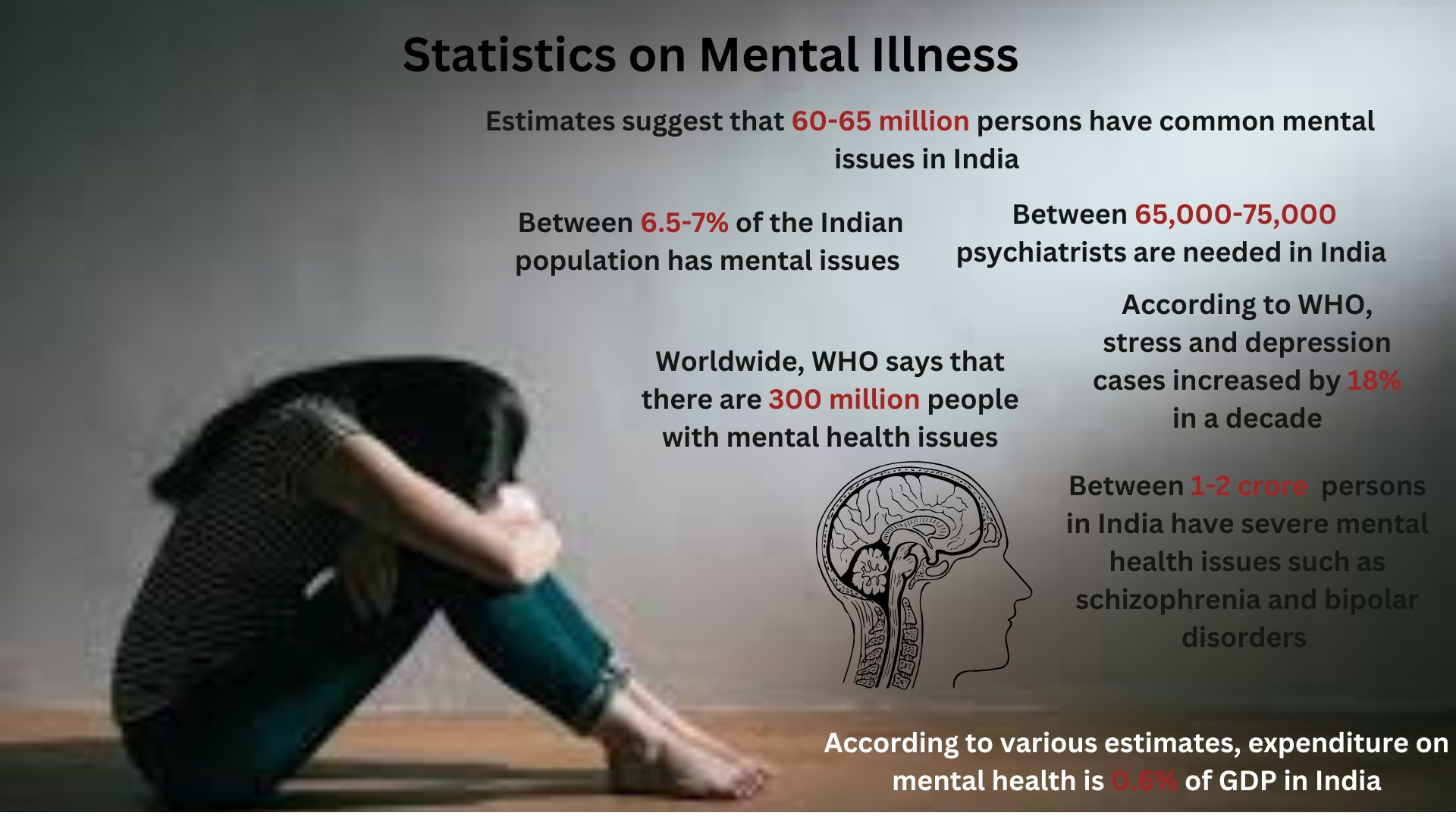


Schizophrenia is one of the severe mental disorders that is often “labelled” in society. It is one of the most disabling and economically burdening diseases, as it mostly affects young adults in the productive age group, with a chronic course in some. One in every hundred people experiences schizophrenia, and men are twice as likely to develop this condition as compared to women. People with this condition have double the risk of death due to suicide compared to the general population. Along with mental wellbeing, this disorder also affects a person’s social and occupational lives. Most of the time, they are isolated, or worse, get thrown out of families due to carer frustration or poor understanding of illness. Due to the behaviour changes, many get ‘polarised’ as ‘pagals’ (Hindi for ‘lunatic’) and end up on the streets or resort to addictions. Often, people with schizophrenia are portrayed as dangerous, violent, or psychopathic by the media through movies and television shows, which is ironically just the opposite. A person with schizophrenia is not more dangerous or ‘criminal’ than anyone else; rather, they often fall victims to violence, abuse, and fraud themselves. They are more likely to harm themselves and are aggressive only when provoked or ridiculed, as suspiciousness can be a major symptom of this illness. Often, the affected person might not have the understanding to avail himself of professional help on his own. This is what makes our awareness about this disease all the more important, contrary to the ‘mysticism’ and “paranormalcy” that it is equated with in the popular media.
What is schizophrenia?
The term schizophrenia comes from Greek words “schezein” (to split) and “phrenos”(mind), which roughly translates to “splitting of mind”. It intends to describe the separation of daily function from the way a person thinks, speaks and perceives the world. It is in that way, a disorder of the ‘processes of mind and thinking’. People affected often have an own ‘imagined’ world in which they live and believe, detached from the reality. It can lead to self-absorption and excessive communication with oneself.
Schizophrenia is not entirely genetic, though presence of illness in the family plays a role.
Symptoms of schizophrenia
can be seen in terms of muttering to self (they may hear voices commanding or discussing about them, in the absence of any), having false unshakable beliefs that cannot be changed by evidence. These are termed as ‘hallucinations’ and ‘delusions’ respectively. They may also suffer from suspiciousness (they may feel people are conspiring against them), muddled or disrupted thoughts which can be expressed through incomprehensive speech or unusual behaviour. There can also be another set of symptoms like poor emotional response or expression, poor self-care/personal hygiene, withdrawn behavior, attention, concentration and memory issues. Sometimes, inappropriate social attitudes and smiling can occur as the ‘sense of social context’ is lost. Research however shows patients of schizophrenia are rarely violent.
How can we help?
Although schizophrenia is a serious mental disorder, it is highly treatable. Specific medications called antipsychotics are used effectively for its treatment. This should be started early, along with psychological counselling that can help an individual suffering from schizophrenia attain complete recovery. More than two-thirds can improve much with proper treatment. Patients need to continue medication and treatment as per their doctors’ advice and stay in regular touch with health care. Contrary to the popular belief, these medicines are NOT ‘addictive drugs’ and DO NOT ‘damage the brain’! Antipsychotics need at least 4 weeks to show their effects and need to be continued long enough for recovery. Research shows that the rate of recurrence of problems is higher, if medicines are stopped suddenly and hence it is vital to have a regular discussion with the treating doctor.The earlier the treatment starts, the better it is.
Besides medication, vocational rehabilitation is vital. Besides reduction of the symptoms of schizophrenia, individuals need to regain their jobs, relationships and daily life activities for a ‘true recovery’. Community acceptance against stigma towards this illness and meaningful social participation of those living with schizophrenia is a must.
What can we do?
The Way Forward
Awareness, identification and care are the three main pillars of managing any mental disorder. Community awareness about the early signs of the illness, sensitizing the family members and primary health care workers are extremely important in this regard. All level of stakeholders needs to assume collective responsibility, and the media has an integral role to play in it. Authentic Information-Education-Communication (IEC) material can be referred to for detailed information (ex: official websites of National Institute of Mental Health, US or National Institute of Mental Health and Neurosciences, NIMHANS, Bengaluru and other national institutes).
The author is a consultant Neuropsychiatrist at Apollo Multispecialty Hospitals, Kolkata.